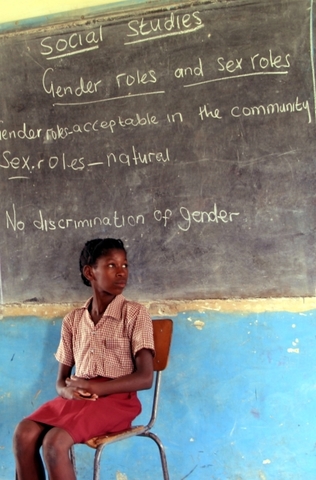-
The Greatest Story Never Told
› “If the pope is interested, everyone is interested,” said Alexandre Roulin, accepting the 2019 Environmental Peacebuilding Research Award in Irvine, California. The University of Lausanne professor’s project—on how conserving barn owls in the Middle East brings together people in Israel, Jordan, and Palestine across political divides—is certainly unique and intriguing. (Also, cute owls!)
“If the pope is interested, everyone is interested,” said Alexandre Roulin, accepting the 2019 Environmental Peacebuilding Research Award in Irvine, California. The University of Lausanne professor’s project—on how conserving barn owls in the Middle East brings together people in Israel, Jordan, and Palestine across political divides—is certainly unique and intriguing. (Also, cute owls!)The spiritual leader of the world’s 1 billion Catholics reached out to Roulin because the “Barn Owls Know No Boundaries” project promises a possible way to build peace in one of the world’s most intractable religious conflicts. A tremendous story, right?
But despite having all the hallmarks of a great tale, a quick Google search finds only a handful of stories about it. This lack of media attention is unfortunately an ongoing challenge for what I have long viewed as “the greatest story never told.”
-
Real-time Data Could Save More People from Covid-19
›
It’s clear that the virus that causes Covid-19 travels freely. It needs no visa, having breached many points of entry. Experts at Imperial College London estimate that “in the absence of interventions, Covid-19 would have resulted in 7 billion infections and 40 million deaths globally this year.” Now is the time for governments to get ahead of the curve and respond to the emergency. It’s time to take a whole-of-government approach to strengthen testing at points of entry and institute mass testing at various points as South Korea did.
-
Toward a New Regional Approach to Water Security and Governance in the Horn of Africa
›Guest Contributor // April 7, 2020 // By Anniek Barnhoorn, Florian Krampe, Luc van de Goor, Elizabeth Smith & Dan Smith
As the global climate changes, climate-related security risks are making the existing political, social, and economic challenges even more complicated. The 230 million people who live in the Horn of Africa are highly vulnerable to the impacts of climate change such as droughts and floods. Political fragility and transnational complexities make water governance a matter of regional high-level politics as well as geopolitical tensions. In short, sustainable water governance is critical for achieving resilient peace.
-
Covid-19 and Conflict Zones: Prepare Now or Face Catastrophe
›
As we have seen over recent weeks, the impact of Covid-19 has caused unprecedented disruption, deaths, and confusion in developed countries. The public health capacity of countries such as the United States and UK has been overwhelmed.
-
Show Me! Laying the Foundation for the Next Generation of Environmental Peacebuilding
› As documented by the New Security Beat, environmental peacebuilding has grown dramatically as a field in recent years. Across the security, development, and diplomatic communities, there is increased recognition that disputes related to natural resources and the environment can escalate to violence, fund armed conflict, and provide an incentive for peace spoilers. At the same time, practitioners and researchers have highlighted numerous ways that natural resources and the environment can be a catalyst of peace by supporting livelihoods and economic recovery, underpinning basic services, and providing a context for dialogue and cooperation.
As documented by the New Security Beat, environmental peacebuilding has grown dramatically as a field in recent years. Across the security, development, and diplomatic communities, there is increased recognition that disputes related to natural resources and the environment can escalate to violence, fund armed conflict, and provide an incentive for peace spoilers. At the same time, practitioners and researchers have highlighted numerous ways that natural resources and the environment can be a catalyst of peace by supporting livelihoods and economic recovery, underpinning basic services, and providing a context for dialogue and cooperation. -
How Gum Acacia Trees Could Help Build Peace in the Sahel
›
A special type of tree could facilitate peacebuilding in the Sahel. A stretch of semi-arid land south of the Sahara that runs from the Red Sea to the Atlantic Ocean through 10 countries (Eritrea, Sudan, Chad, Niger, Nigeria, Burkina Faso, Mali, Algeria, Mauritania, and Senegal). But the western subregion covering the Lake Chad area (the intersection of Chad, Cameroon, Nigeria, and Niger) and Liptako-Gourma (the tri-border zone of Burkina Faso, Mali, and Niger) in the Sahel has been the scene of a growing humanitarian crisis. Armed groups are terrorizing local populations. Rampant insecurity has forced 1 million people to flee their homes. People have been cut off from their livelihoods. Food insecurity is worsening. Casualties continue to mount. And climate change will likely exacerbate conditions, forcing more people to compete for depleted forest resources and land. More food shortages and instability will surely follow.
-
The Future of Climate Change and Peace
› As fires rage in Australia and in the Amazon, hurricanes ravage the Caribbean year after year, and glacial melt threatens entire communities in the high mountains of Asia and Europe, peace and climate activists might be forgiven for experiencing a growing sense of dread. Environmental events of this magnitude have the potential to simultaneously trigger new ecological disasters and strain social and political systems. The unprecedented challenges borne of the climate crisis will be far-reaching, from large-scale involuntary migration and food and water shortages, to biodiversity and ecosystem loss. These challenges require responses that build social cohesion rather than fuel conflict—responses that are collaborative, just, and climate-resilient.
As fires rage in Australia and in the Amazon, hurricanes ravage the Caribbean year after year, and glacial melt threatens entire communities in the high mountains of Asia and Europe, peace and climate activists might be forgiven for experiencing a growing sense of dread. Environmental events of this magnitude have the potential to simultaneously trigger new ecological disasters and strain social and political systems. The unprecedented challenges borne of the climate crisis will be far-reaching, from large-scale involuntary migration and food and water shortages, to biodiversity and ecosystem loss. These challenges require responses that build social cohesion rather than fuel conflict—responses that are collaborative, just, and climate-resilient. -
Sexuality Education Begins to Take Root in Africa
›
In Kenya, primary and secondary school students take courses called Life Skills Education. So do students in Malawi, Mozambique, Namibia, and Swaziland. South Sudan adds “peace-building” to the subject title. Lesotho, Madagascar, Rwanda, Tanzania, Uganda, and Zambia are more direct. These countries add the word “sexuality” to the course name.
Showing posts from category Guest Contributor.


 “If the pope is interested, everyone is interested,” said Alexandre Roulin, accepting the 2019 Environmental Peacebuilding Research Award in Irvine, California. The University of Lausanne professor’s project—on how
“If the pope is interested, everyone is interested,” said Alexandre Roulin, accepting the 2019 Environmental Peacebuilding Research Award in Irvine, California. The University of Lausanne professor’s project—on how 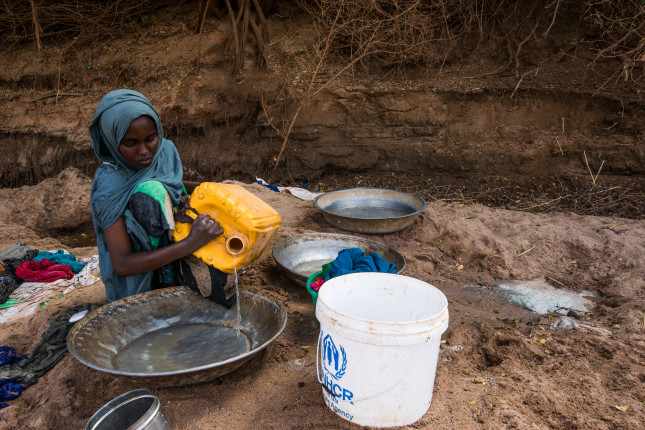
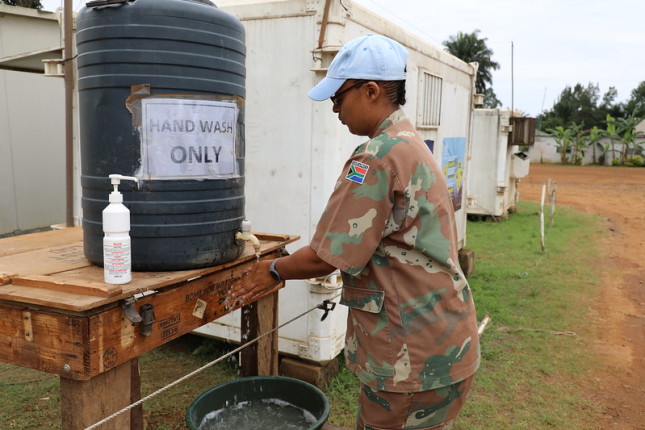
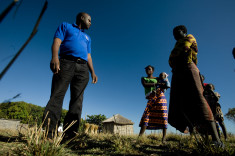 As documented by the New Security Beat, environmental peacebuilding has grown dramatically as a field in recent years. Across the security, development, and diplomatic communities, there is increased recognition that disputes related to natural resources and the environment can escalate to violence, fund armed conflict, and provide an incentive for peace spoilers. At the same time, practitioners and researchers have highlighted numerous ways that natural resources and the environment can be a catalyst of peace by supporting livelihoods and economic recovery, underpinning basic services, and providing a context for dialogue and cooperation.
As documented by the New Security Beat, environmental peacebuilding has grown dramatically as a field in recent years. Across the security, development, and diplomatic communities, there is increased recognition that disputes related to natural resources and the environment can escalate to violence, fund armed conflict, and provide an incentive for peace spoilers. At the same time, practitioners and researchers have highlighted numerous ways that natural resources and the environment can be a catalyst of peace by supporting livelihoods and economic recovery, underpinning basic services, and providing a context for dialogue and cooperation.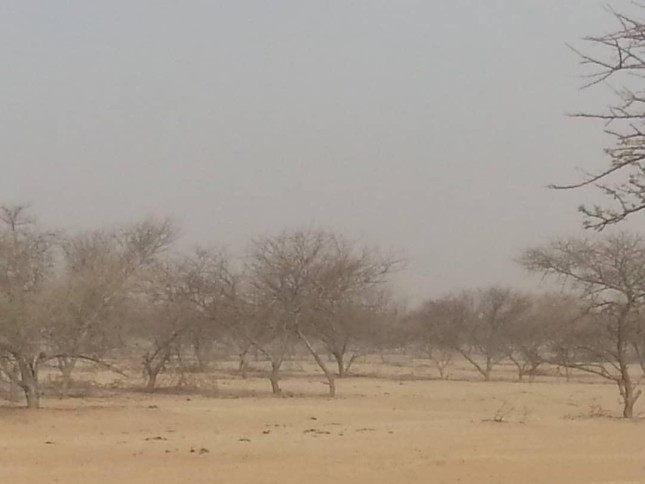
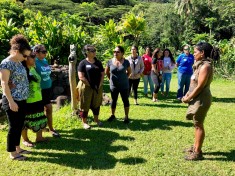 As fires rage in Australia and in the Amazon, hurricanes ravage the Caribbean year after year, and glacial melt threatens entire communities in the high mountains of Asia and Europe, peace and climate activists might be forgiven for experiencing a growing sense of dread. Environmental events of this magnitude have the potential to simultaneously trigger new ecological disasters and strain social and political systems. The unprecedented challenges borne of the climate crisis will be far-reaching, from large-scale involuntary migration and food and water shortages, to biodiversity and ecosystem loss. These challenges require responses that build social cohesion rather than fuel conflict—responses that are collaborative, just, and climate-resilient.
As fires rage in Australia and in the Amazon, hurricanes ravage the Caribbean year after year, and glacial melt threatens entire communities in the high mountains of Asia and Europe, peace and climate activists might be forgiven for experiencing a growing sense of dread. Environmental events of this magnitude have the potential to simultaneously trigger new ecological disasters and strain social and political systems. The unprecedented challenges borne of the climate crisis will be far-reaching, from large-scale involuntary migration and food and water shortages, to biodiversity and ecosystem loss. These challenges require responses that build social cohesion rather than fuel conflict—responses that are collaborative, just, and climate-resilient.